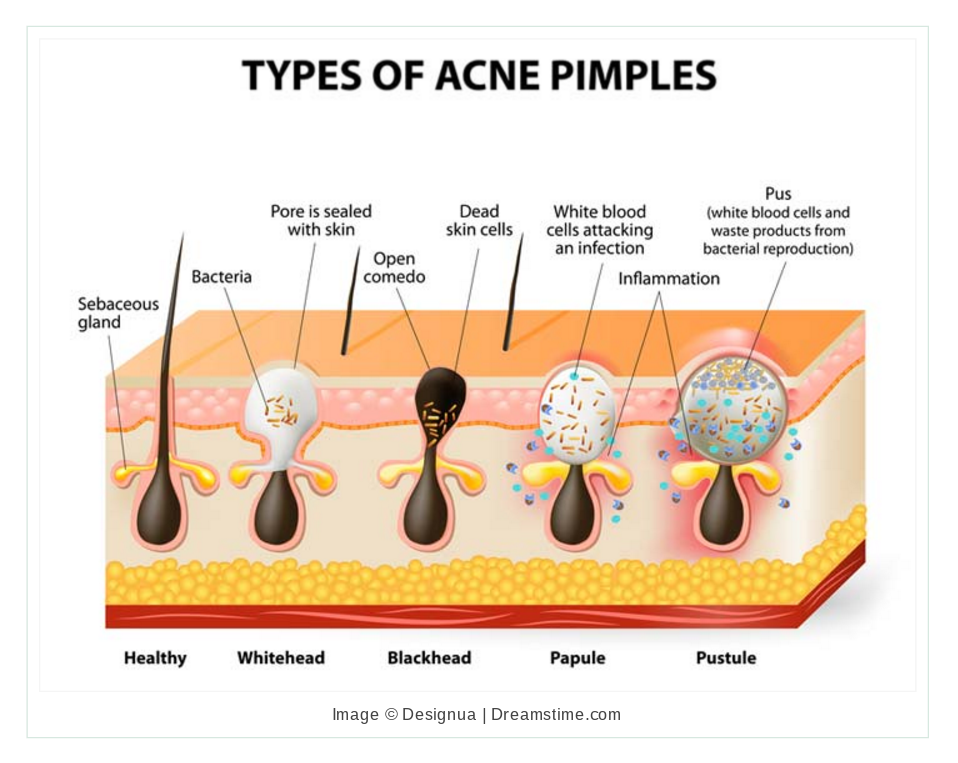Why You Shouldn't Pop Your Pimples

By:
Everyone dreads getting a pimple. Not only it is an indication of something infectious brewing beneath your skin, but it also isn't the best confidence booster. Our natural inclination may be to burst the little ball of pus and be done with it, but popping pimples may cause many more skin problems including more zits plus scarring, according to a video from Business Insider.
How does a pimple begin?
Pimples are essentially very tiny balloons filled with bacteria. They form because of the overproduction of oil in your skin, irregular shredding of dead skin, and bacteria that filled your skin's pores according to Medicine Daily.
Your skin naturally secretes oil to help moisturize and waterproof you skin, but sometimes this oil becomes trapped beneath the skin by the blockage of dead skin cells. This gives bacteria the perfect opportunity to build up. Soon, a sack begins to form around the infected area, resulting in a pimple.
The illustration below details the different kinds of zits that can hit us.
 Medical News Today/Dreamstime.com - medicalnewstoday.com
Medical News Today/Dreamstime.com - medicalnewstoday.com
Though acne is often considered a "teen problem," many adults in their 20s and beyond get stuck with zits, both occasional and more stubborn, according to the American Academy of Dermatology. Acne is the most common skin condition in U.S. and affects up to 50 million people every year. Eighty-five percent of people ages 12 to 24 will experience at minor acne at some point in their life.
Here's why you shouldn't pop.
You might be tempted to self-eradicate your pimple at its onset but this practice has collateral damage.
"Squeezing it can result in these contents being pushed into surrounding skin, making the problem worse," Michelle Rodrigues, consultant dermatologist at St. Vincent's Hospital Melbourne, was quoted in the Business Insider video.
Although seeing pus ooze out of your skin may seem like the worst is over, that's not entirely true. There's a lot more hidden beneath the skin's surface aside from the instant release of pus. Picking at zits forces excess sebum, dead skin cells, and bacteria deeper into the skin, which can cause infections. When squeezing your pimple, you might be transferring more bacteria onto your face and this can lead to acne scarring or marks in the skin, according to YouBeauty. In some cases, popping pimples can lead to a staph infection and hospital visits, which is more trouble than it's worth.
So how should you treat your pimples?
Obviously walking around with a huge honker doesn't sound like fun, but your best bet may be just to wait it out. If you can manage to bear the discomfort or resist the temptation to pop your pimple for a week then Mother Nature will reward you. After a week, the pus will start to settle down into the skin or spontaneously pop at the right time, according to Medicine Daily.
But if you can't deal with the unwanted guest appearing on your face, there are some simple strategies to get rid of them without having to sacrifice your skin's long-term health.
“Many patients use products that contain retinoid, a vitamin A derivative, at night to make the lesions better,” board-certified dermatologist Dr. Michael H. Gold told the Huffington Post. “They actually work at the start of the acne process.”
Beauty mogul Michelle Phan recommends applying a little hydrogen peroxide onto the pimple. The chemical will essentially dry out the zit and considerably reduce its size.
Itching to nix the zit(s) ASAP? An aesthetician or dermatologist can perform an extraction. In one swift motion they use a tool to press down on the skin and just scoop up the pus according to New York Magazine. This gets rid of the pimple in a sterile and professional manner.
If you happen to spot a pimple, resist the urge to pop it (at least yourself). Instead, remember that this too shall pass — or hit up a drugstore for some OTC relief.
You can watch the full Business Insider video here:
